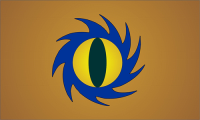Table of Contents
Rialumu Jyaonka (Codex of Possession)
Within the Poku Saeruo Degonjo Rialumui (Possessions) are very important, not just to the individual but their Punla (Family), Ruoka (House) and Poku (Clan).
CO-1.0 Possession
Possessions are defined as objects, something that can be purchased. It can be a vehicle (ground car, flitter, spaceship, a house, land, weapons, jewelery, privately created intellectual property (poetry, music, songs books, programs), currency, and loans.
CO-1.1 Jael (Sect)
A Jael can purchase possessions, while they may be loaned to a Ruoka (House), Punla (Family) or individual, they are still the property of the Jael. It is uncommon for a Jael to loan possessions to non-members. Purchases of possessions must be approved by the membership. Typically a simple majority is required. The disposition, sale or gifting of possessions likewise must be approved by the membership.
Manufactured items, or intellectual property that the Jael compensated the creator for even if a member are possessions of the Jael.
CO-1.2 Rouka (House)
A Rouka can purchase and own possessions. The possessions can be used, loaned to any member of the Rouka. Small purchases are approved by the senior members of the Rouka. Large purchases such as land, ships, houses, require the majority approval of the adult members. This is also true for disposition of possessions.
CO-1.3 Personal
Citizens of the Clan can purchase possessions, or receive them as gifts. They can use them as they wish, and may dispose of them in whatever manner they choose. They can also bequeath them in accordance with CO-5.1.
Manufactured items, or intellectual property that the person creates that they did not receive kâbolelpa (wages) is their possession.
CO-1.4 Business
A business is typically an independent entity legally speaking. They can purchase possessions, and disposition is at the discretion of the owner or board of owners.
Manufactured items, or intellectual property that the Jael compensated the creator for even if a member are possessions of the Business.
CO-2.0 Stealing
Stealing within the clan is defined as depriving a person of their rightful property.
CO-2.1 Theft Personal
A person who knowingly takes another citizen's possessions with the intent to keep them without permission, is guilty of Stealing.
CO-2.1.1 Theft Jael or Ruoka
A person who knowingly takes takes possessions from a Jael or Ruoka without permission, is guilty of Stealing.
CO-2.2 Theft and Sale Personal
A person who takes someone's property and gives or sells it to another person is guilty of stealing.
CO-2.2.1 Theft and Sale of Jael or Ruoka
The same is true if the person takes possessions from a Jael or Ruoka.
CO-2.3 Purchase of Stolen Property
A person who unknowingly purchases or accepts property that was stolen under CO-2.2 pr CO-2.2.1 is not guilty of stealing.
CO-3.0 Destruction
CO-3.0.1 Intentional
The intentional destruction of another entity's property or possession is a crime. The responsible party or parties must make retribution. Failure to make full restitution will result in prosecution and possible incarceration.
CO-3.0.2 Unintentional
The unintentional destruction of another entity's property or possession may be a crime if the person can be found culpable. The degree of culpability will determine what form of restitution must be made.
CO-4.0 Loss
The clan believes that a person has a legal responsibility to use items entrusted to them to perform their job wisely. This includes ensuring their safekeeping.
CO-4.1 Starship
Starships that are lost directly due to the actions of the Tin'ta (Ship commander) can be a violation of the Codex. The matter must be taken before the Tanoi (Council) for determination.
CO-4.2 Negligence
Losing possessions supplied to a person due to negligence or carelessness is a violation of the codex. The owning entity has the legal right to full compensation to replace the lost items.
CO-5.0 Inheritance
- Only property that belongs to an individual can be given as an inheritance.
- The owner must have documented their Will and have it notarized by a Galyt'a (Lawyer). The Will unless disputed controls the disposition of the deceased possessions.
- In the event of no documented Will the possessions will be distributed to the individuals legal heirs.
- Spouses will share 75% of the possessions or their value in Odawina (OW). In the event there are no dependent Bagli (Children) the spouses will receive 100% of the possessions or their value.
- Dependent Baqli (Children) will share 25% of the possessions or their value in Odawina (OW).
